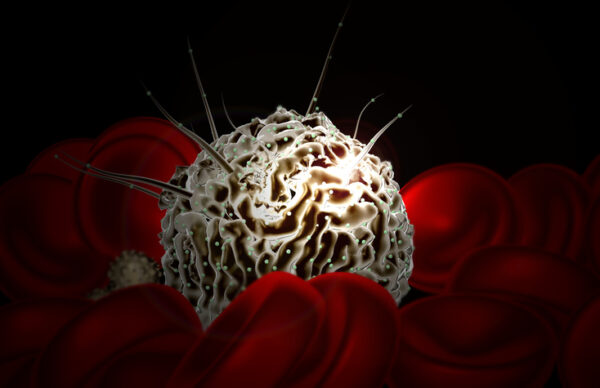
A genetic medicine at the heart of a $387 million Kyowa Kirin acquisition has won FDA approval, a regulatory decision that makes the one-time treatment the first approved therapy for the rare inherited disorder metachromatic leukodystrophy (MLD).
In the most severe form of MLD, babies develop normally only to rapidly lose the ability to walk, talk, and interact by the time they reach late infancy. Eventually, children with MLD deteriorate to a vegetative state, and most pass away within five years of the disease’s onset.

With the Rise of AI, What IP Disputes in Healthcare Are Likely to Emerge?
Munck Wilson Mandala Partner Greg Howison shared his perspective on some of the legal ramifications around AI, IP, connected devices and the data they generate, in response to emailed questions.
The gene therapy, from Kyowa Kirin subsidiary Orchard Therapeutics, is already approved in Europe for treating early onset MLD in infants and children, marketed there under the brand name Libmeldy. The FDA decision announced Monday is similar, covering the treatment of late infantile or early juvenile forms of the disease in children who are not yet showing symptoms. The FDA nod also covers the treatment of children who have early juvenile MLD with early signs of symptoms. In the U.S., the therapy will be commercialized as Lenmeldy.
“The FDA approval of Lenmeldy opens up tremendous new possibilities for children in the U.S. with early-onset MLD who previously had no treatment options beyond supportive and end-of-life care,” Orchard co-founder and CEO Bobby Gaspar said in a prepared statement.
MLD is an inherited disease that leads to a deficiency of a key enzyme called arylsulfatase A (ARSA). Without enough of this enzyme, fatty substances build up in cells, causing damage to the central and peripheral nervous system. According to the FDA, an estimated one in every 40,000 individuals in the U.S. has MLD.
Lenmeldy is made by collecting a patient’s own hematopoietic stem cells. In a lab, a functional copy of the ARSA gene is inserted into those cells. The genetically modified cells are then infused back into the patient, where they go to the bone marrow and multiply. Like some other gene therapies, the infusion step is preceded by a pretreatment regimen in which chemotherapy is used to kill cells from the bone marrow so they can be replaced by the modified cells that make up Lenmeldy.
The FDA approval is based on data from two single-arm, open label studies that evaluated Lenmeldy in 37 children. Study participants were compared to the natural history of untreated children. The main goal was to measure the time from birth to the first occurrence of loss of locomotion, the loss of the ability to sit without support, or death.
Trial results showed that all children with pre-symptomatic late infantile MLD who were treated with the Orchard gene therapy were alive at age 6, compared to 58% of children in the natural history group. At age 5, 71% of treated children were able to walk without assistance. Furthermore, 85% of the treated children at age 5 had normal language and performance IQ scores, a measure that has not been reported in untreated children. The results in pre-symptomatic early juvenile MLD patients and early symptomatic early juvenile patients showed a slowing of motor and cognitive disease.
The most common side effects reported from the clinical trial included fever, low white blood cell count, mouth sores, respiratory infections, and rash. The FDA said that after infusion with Lenmeldy, patients’ counts of neutrophils, a type of white blood cell, should be monitored. The FDA said patients should also be monitored for a delay in the recovery of platelet cells. In clinical trials, four patients had a delay in this platelet engraftment after day 60, and three of them required platelet transfusions until engraftment occurred.
The FDA cautioned that Lenmeldy may lead to blood clots or brain swelling. The agency also said blood cancer is a risk associated with this therapy, though no cases have been seen in treated patients so far. Like other cell and gene therapies, the FDA is requiring that patients have lifelong monitoring for blood cancers.
Lenmeldy originated in the labs of GSK. That program and others went to Orchard in 2018 via the $133.6 million acquisition of the pharmaceutical giant’s gene therapy portfolio. The transaction put GSK in line for milestone payments and royalties from sales of approved products. GSK may also purchase any priority review voucher that the FDA awards Orchard for a product approval in MLD or two other rare diseases. Such vouchers enable a company to speed up the regulatory review of another drug for a rare disease, but voucher recipients often sell them at prices topping $100 million.
Orchard said Monday that Lenmeldy’s approval came with a priority review voucher and the voucher would be transferred to GSK per the terms of the original agreement. Orchard has not disclosed any financial specifics of this transaction, other than to say that the price would be set by an agreed upon formula. The company also said it would provide details later this week about Lenmeldy’s U.S. launch.
Last fall, Kyowa Kirin announced an acquisition agreement for Orchard, a deal that adds gene therapy to its pipeline. The Japanese drugmaker completed the transaction in January, paying $16 for each of Orchard’s American depositary shares. The acquisition agreement includes a contingent value right putting Orchard shareholders in line for an additional $1 per share tied to Lenmeldy’s FDA approval. That payment will add another $90 million to the payout.
Image: Getty Images














